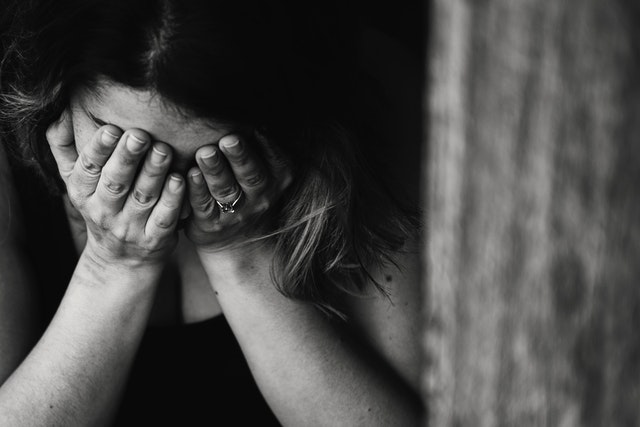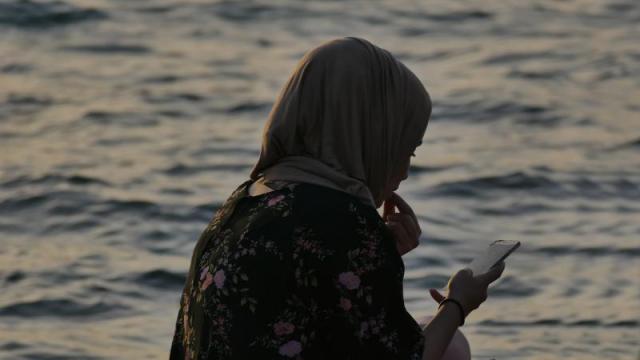New action plan on forced labour, trafficking and slavery; advocates respond
Mon 29 Mar 2021
Following consultation, the government has published a five-year action plan to address forced labour, people trafficking and slavery.

The Combatting Modern Forms of Slavery: Plan of Action against Forced Labour, People Trafficking and Slavery 2020-25 is a high-level framework for the actions that government agencies will take over the next five years. It sets out the all-of-government approach to addressing these issues in the areas of prevention, protection and enforcement.
Under the scope of the plan, it says the initiatives will "...focus on people trafficking, slavery and slavery-like practices including forced labour, debt bondage and serfdom." It further states:
"We recognise that these forms of exploitation are often associated with other unlawful practices and criminal offences such as (but not limited to) breaches of employment standards, immigration fraud, physical and sexual assault including family violence, and money laundering. While not the focus of this Plan of Action, responding to those breaches and offences can assist in preventing or detecting serious exploitation.
Accordingly, we recognise the need for holistic action through a range of means and avenues, and the need to work in conjunction with other programmes across government. This includes progressing our Transnational Organised Crime Strategy and Action Plan, and work to address family violence and sexual violence."
The plan is focused on "...exploitation at the extreme end of the spectrum, while recognising that a comprehensive approach needs to address less extreme forms of exploitation which may escalate over time." Examples of extreme exploitation including trafficking in persons, coerced marriage, other forms of sexual exploitation, exploitation of the prostitution of others, slavery or practices similar to slavery and others. It outlines 28 high-level actions for government agencies.
The plan was finalised following public consultation in October 2020.
Responses to the action plan
Advocates have welcomed the plan but have called on government to take further urgent action. The Human Trafficking Research Coalition said the "...plan falls well short of what is needed." The Coalition welcomed the government's increased attention and commitment to further research and the committment to consider modern slavery legislation. However, the Coalition highlighted gaps in addressing the disproportionate risks to children and women, saying:
"The Coalition is also critical that the government’s plan mentions children only minimally, when we know that for every 10 trafficking victims detected globally, about five are adult women and two are girls."
The Coalition’s spokesperson, Selwyn Coles, said
“The government’s plan also currently focuses predominantly on labour trafficking and still does not adequately include other forms of modern slavery such as sexual exploitation.”
Coles also noted that the plan needed to consider gender as a contributing factor to vulnerability, with women and girls comprising over 71% of global trafficking victims. The Human Trafficking Research Coalition was founded in 2013 and brings together World Vision, Tearfund, Hagar, ECPAT Child Alert, and The Préscha Initiative to tackle modern slavery in New Zealand.
World Vision and Trade Aid also welcomed the report. However, along with 85 businesses and organisations, they are calling on the government to take urgent action to implement modern slavery legislation.
At the Centre for Research on Modern Slavery, Christina Stringer is leading research on the potential for modern slavery legislation in New Zealand.
The National Collective of Independent Women's Refuges has prevoiusly shared their submission on the draft action plan outlining 10 recommendations.
See further commentary and background in the media list below.
Recent UN commentary and research on gender and human trafficking
In November 2020, the UN Committee on the Elimination of Discrimination against Women issued the General recommendation No. 38 (2020) on trafficking in women and girls in the context of global migration. The Committee noted that the Convention on the Elimination of All Forms of Discrimination against Women sets out States' obligations to "...to take all appropriate measures, including legislation, to suppress all forms of trafficking in women and exploitation of prostitution of women." However the Committee noted that:
"Despite the plethora of existing legal and policy frameworks to combat trafficking at the national, regional and international levels, women and girls continue to comprise the majority of detected victims of trafficking across the world, and perpetrators enjoy widespread impunity."
The Recommendation further stated:
"2. In the view of the Committee, the situation persists due to a lack of appreciation of the gender dimensions of trafficking overall and, in particular, of the trafficking of women and girls who are exposed to various types of exploitation, including sexual exploitation. A gender analysis of the crime reveals that its root causes lie in sex-based discrimination, including the failure to address the prevailing economic and patriarchal structures and the adverse and gender-differentiated impact of the labour, migration and asylum regimes of States parties that create the situations of vulnerability leading to women and girls being trafficked."
In 2020, UN Women published a discussion paper making the connections between the human rights violations of sexual harassment and sexual exploitation and abuse, highlighting that organizations in the development and humanitarian sectors have tended to address these two forms of violence as separate and independent problems. The report calls for rethinking of approaches to these human rights violations including approaches that centre survivor voices and understand the common causes and dynamics of sexual harassment and sexual exploitation and abuse. An additional UN Women report examined the global trend of prosecuting women and girls for human trafficking-related crimes, when often they are the victims of human trafficking and sexual exploitation.
A recent report from the United Nations Office on Drugs and Crime has highlighted the worsening trend in human trafficking since the state of COVID-19.
Related news
The NZ Human Rights Commission published a new report, Drivers of migrant New Zealanders’ experiences of racism in March 2021. The report summarises research that involved interviews with settlement service providers and focus groups with Māori, Pākehā and tauiwi migrants (inclusive of former refugees). Race Relations Commissioner Meng Foon commented "The impacts of racism are traumatic, intergenerational, broad and affect all aspects of wellbeing. Racism leaves deep-rooted scars that often don’t heal."
Update: The Organization for Security and Co-operation in Europe published the research report Applying Gender-Sensitive Approaches in Combating Trafficking in Human Beings in May 2021.
Related media
Govt shuts down modern slavery group, Newsroom, 17.07.2024
Crises hindering victim identification: UNODC human trafficking report, UN News, 24.01.2023
Traffickers abusing online technology, UN crime prevention agency warns, UN News, 30.10.2021
Modern slavery: Time for NZ legislation, Newsroom, 21.09.2021
New Zealand not doing enough to stop trafficking, US report says, RNZ, 03.07.2021
Call for more laws to protect Pasifika from modern slavery, RNZ, 23.03.2021
Action plan to tackle modern forms of slavery released, Beehive media release, 16.03.2021
Government urged to move fast on modern slavery law, Newsroom, 09.03.2021
COVID-19 impact exposes millions to the risk of trafficking, UN agency says, UN News, 02.02.2021
Image: Kat Jayne from Pexels





